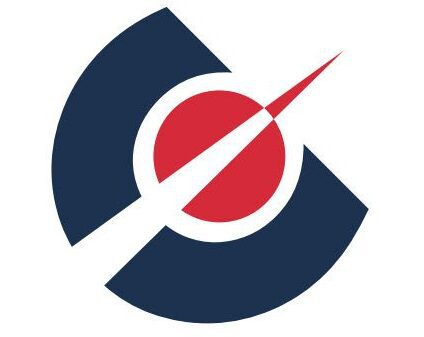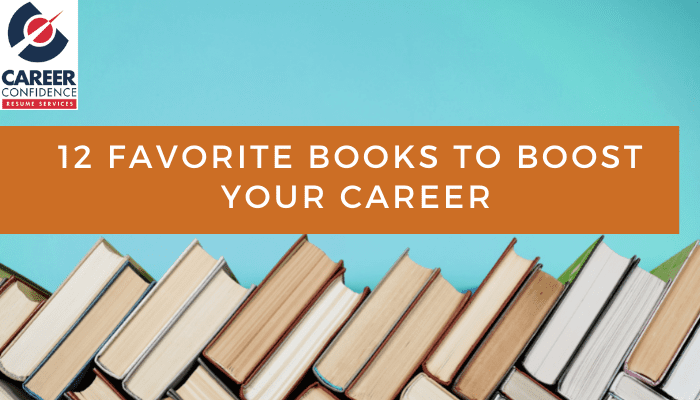Professionals seeking employment opportunities are some of the hardest-working people I know. Not only do they want to find a new job, but they are also eager to learn how they can make meaningful contributions to their employers. As a professional resume writer for the past 10+ years, hundreds of clients have asked me to recommend books that will help them in their careers. Here’s our recommended reading. Be sure to post below with your recommendations!
1) Radical Candor: Be a Kickass Boss Without Losing Your Humanity by Kim Scott
After successful tenures leading teams at Google and Apple, Scott shared her insights with the world. Since it was published 2 years ago, Radical Candor has been on the New York Times and Wall Street Journal best sellers list several times. It has been translated into 20 languages. It’s that good!
Bosses can get a bad rap as one extreme or the other. They can come across as insensitive and only caring about the bottom line or as spineless weaklings who lets others take advantage of them, and their teams.
Instead, Scott advocates for having empathy for others while directly challenging them and guiding them in their growth. She challenges managers to ask subordinates for constructive criticism so they can improve their ability to lead without the trappings of what she calls “Obnoxious Aggression, Manipulative Insincerity, and Ruinous Empathy.”
The Radical candor method involves seven steps: listen, clarify, debate, decide, persuade, execute and learn. It provides a wealth of guidance on mastering the art of feedback and how to have those difficult conversations in ways that your team will receive them and be inspired to act.
In short, you can love your work and your colleagues through positive reinforcement and embracing feedback.
2) The 7 Habits of Highly Effective People: 30th Anniversary Edition by Stephen R. Covey
The 7 Habits of Highly Effective People is considered the most influential business book of the 20th Century. Written by Stephen R. Covey (1932–2012), who Time magazine named one of the 25 most influential Americans, this principle-centered classic teaches readers how to live with fairness, integrity, honesty and dignity so they can manage changes in any relationship and welcome the new opportunities that follow. Covey’s seven habits include: Be Proactive; Begin with the End in Mind; Put First Things First; Think Win/Win; Seek First to Understand, Then to Be Understood; Synergize; and Sharpen the Saw.
This 30th Anniversary edition features modern insights for next generation leaders from New York Times and Wall Street Journal best-selling author Sean Covey.
3) Good Leaders Ask Great Questions: Your Foundation for Successful Leadership by John C. Maxwell
Most everyone searching for a job worries about answering the interview questions perfectly. But asking great questions throughout the entire process—from networking to accepting the job offer—could be even more important. Learn why questions are so important, what questions you should ask yourself as a leader, and what questions you should be asking your team. You’ll also find out how to ask strategic questions that will help you learn, grow, connect with other, and challenge yourself and your ideas.
4) How to Win Friends and Influence People in the Digital Age by Dale Carnegie
A self-described “simple country boy,” Dale Carnegie (1888–1955) blazed the trail to self improvement with his iconic How to Win Friends and Influence People. It was first published 86 years ago in 1936 and continues to rank on Amazon Charts’ Most Read List (#15 while writing this blog) and Most Sold List (#17 while writing this blog). Now that’s standing the test of time!
Carnegie teaches that the key to influencing others is to talk about what they want and show them how to get it. You’ll learn techniques for how to handle people, sincere ways to get people to like you, how to convince people of your ideas and how to be a leader other want to follow, not resent.
With illuminating truths, practical advice and useful suggestions like “If You Want to Gather Honey, Don’t Kick Over the Beehive,” is packed with timeless wisdom you can in your personal and professional life.
5) 48 Days to the Work You Love by Dan Miller
Dan Miller helps readers understand their skills, personality traits, values, dreams and passions so they can think outside the box for job possibilities and successfully navigate the dynamic changes of today’s workforce. With Miller’s step-by-step process for building your Life Plan, you’ll learn how to organize those unique details and transform them into meaningful work that fulfills your calling. Where will you be in 48 days?
6) Think & Grow Rich in the 21st Century by Napoleon Hill (updated classic)
Napoleon Hill (1883-1970) is considered the father of success philosophy, originally published in 1925 as The Laws of Success. In the classic Think and Grow Rich he used the success of 19th Century millionaires like his friend Andrew Carnegie, Thomas Edison and Henry Ford to illustrate his “Laws of Success.” We love how Arthur R. Pell, Ph.D. weaves anecdotes about attaining wealth from modern extreme net worth individuals such as Bill Gates, Mary Kay Ash, Dave Thomas and Sir John Templeton.
7) Atomic Habits: An Easy & Proven Way to Build Good Habits & Break Bad Ones by James Clear
Whether you have any bad habits to break or want to establish new ones, James Clear has great advice. As a leading authority on habits, he can help you become an expert in the small changes that yield maximum results. It all comes down to your personal system—and he shares his proven system to reach your goals. We love the inspirational stories from Olympians, celebrity artists and accomplished professionals who’ve reached star status. Atomic Habits is a #1 New York Times best seller with more than five million copies sold worldwide.
8) Power Talk: Using Language to Build Authority and Influence by Sara Myers McGinty, Ph.D.
In today’s world, hard work and dedication isn’t enough to get the job and fuel your climb of the corporate ladder. A former professor of language at Harvard University, McGinty shares her insights and tips for effective communication in the workplace. You’ll learn how to use your voice to get on the fast track by analyzing each situation and applying the most effective speaking styles to come through loud and clear. For example, “Language from the Center” positions you as an authority for a speaker. Whereas you’ll build consensus using “Language from the Edge.”
9) Predictably Irrational, Revised and Expanded Edition: The Hidden Forces That Shape Our Decisions by Dan Ariely
Dan Ariely will make you think twice about some of your decisions, and help you make better ones. It’s a real eye opener! He is a James B. Duke Professor of psychology and behavioral economics at Duke University who says we are driven to routinely “overpay, underestimate and procrastinate…making us predictably irrational.”
Our decisions are based on hidden forces that make us feel better after taking an expensive medication instead of a generic alternative. Or spend $20 a week on coffees and use a 25-cent coupon at the grocery store. While the small decisions may seem insignificant, you probably shouldn’t use the same decision-making system to make major decisions about your career. Or your life.
10) Stumbling on Happiness by Daniel Gilbert
Harvard psychologist Daniel Gilbert helps us understand how our brains can misprocess information leading to experiences of things not turning out as we expected. All of us have cognitive biases that predispose us to imagine our future will be happy.
For example, he questions, “Why are lovers quicker to forgive their partners for infidelity than for leaving dirty dishes in the sink?” When we imagine the future, we tend to forget key details, assume other details and fill in missing details that lead to disappointment rather than happiness.
11) Beautiful Money: The 4-Week Total Wealth Makeover by Leanne Jacobs
We love this alternative to the daily grind. In 4 weeks, you can begin achieving meaningful wealth and joy when you “connect and align your inner self with clear and specific external actions.” Jacobs will help you transform your relationship with money and show you how to increase your pay, consolidate your finances, invest and budget. Choose peace and prosperity, and leave stress and scarcity in the dust.
12) Start with Why: How Great Leaders Inspire Everyone to Take Action by Simon Senak
Senak’s inspirational TED Talk about how great leaders inspire action has been viewed 58 million times. In his 2009 Start with Why: How Great Leaders Inspire Everyone to Take Action, Senak asks and explains why certain people and organizations are more innovative, and are more influential and profitable than others. Some companies and brands enjoy greater loyalty from customers and employees. When people clearly understand why the organizations exist, how they operate and how they make their products or provide their services, people can get behind it.
Share, what books have helped you grow your career?
Written by Cassie Hatcher, CEO of Career Confidence LLC, a Certified Professional Resume Writer (CPRW) and Certified Veteran Career Strategist (CVCS) who translates military leadership experience to ensure your resume is on-target for the civilian workforce.
For 8+ years, Career Confidence Resume Services has specialized in translating military experience into accomplishments-focused resumes. Our goal is to help military service members to find their next mission with a resume that captures employers’ attention and highlights their unique military experience.
If you are a military service member, click here to get in contact with us
If you are a civilian professional, manager, or executive click here to contact us
We have a couple of great resources including a free quiz specific for Military & Veterans to answer the question “What Type of Resume Do I Need?” This quiz takes 5 minutes on average to complete.
Also, grab your Free Military to Civilian Resume Template, where you can insert your experience, education, training, and certifications. Take the guesswork out of securing civilian employment and successfully transition from military-to-civilian employment.

